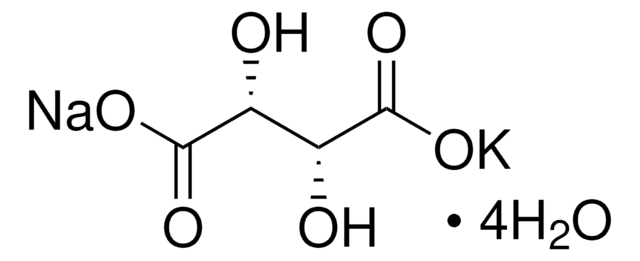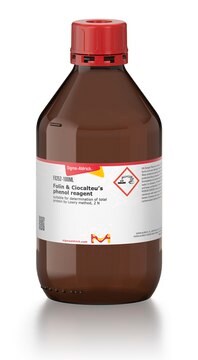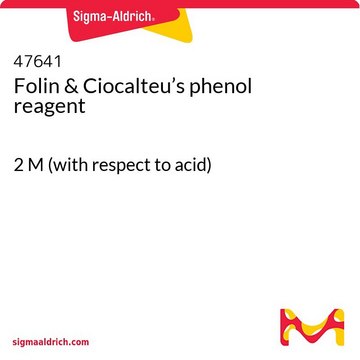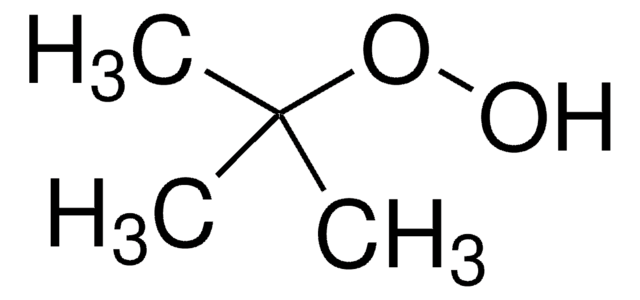87560
Titanium(IV) isopropoxide
≥97.0%
Synonym(s):
TTIP, Tetraisopropyl orthotitanate
About This Item
Recommended Products
Quality Level
Assay
≥97.0%
form
liquid
reaction suitability
core: titanium
reagent type: Lewis acid
reagent type: catalyst
refractive index
n20/D 1.464 (lit.)
bp
232 °C (lit.)
mp
14-17 °C (lit.)
density
0.96 g/mL at 20 °C (lit.)
SMILES string
CC(C)O[Ti](OC(C)C)(OC(C)C)OC(C)C
InChI
1S/4C3H7O.Ti/c4*1-3(2)4;/h4*3H,1-2H3;/q4*-1;+4
InChI key
VXUYXOFXAQZZMF-UHFFFAOYSA-N
Looking for similar products? Visit Product Comparison Guide
General description
Application
Caution
Other Notes
Signal Word
Warning
Hazard Statements
Precautionary Statements
Hazard Classifications
Eye Irrit. 2 - Flam. Liq. 3 - STOT SE 3
Target Organs
Central nervous system
Storage Class Code
3 - Flammable liquids
WGK
WGK 1
Flash Point(F)
105.8 °F - Pensky-Martens closed cup
Flash Point(C)
41 °C - Pensky-Martens closed cup
Personal Protective Equipment
Regulatory Listings
Regulatory Listings are mainly provided for chemical products. Only limited information can be provided here for non-chemical products. No entry means none of the components are listed. It is the user’s obligation to ensure the safe and legal use of the product.
FSL
Group 4: Flammable liquids
Type 2 petroleums
Hazardous rank III
Water insoluble liquid
ISHL Indicated Name
Substances Subject to be Indicated Names
ISHL Notified Names
Substances Subject to be Notified Names
JAN Code
87560-VAR:
87560-100ML:
87560-6X500ML:
87560-500ML:
87560-6X100ML:
87560-BULK:
Choose from one of the most recent versions:
Already Own This Product?
Find documentation for the products that you have recently purchased in the Document Library.
Customers Also Viewed
Our team of scientists has experience in all areas of research including Life Science, Material Science, Chemical Synthesis, Chromatography, Analytical and many others.
Contact Technical Service















